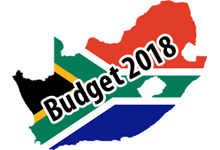
|
|
| |
|
February 2018
|
Stop the World I Want To Get Off
|
"Join the slow e-mail movement! Read your mail just twice each day. Recapture your life’s time and relearn to dream." (Dan Russell, IBM Researcher)
We live in times of immediate responses and instant gratification. A survey done on emails showed that people check their emails up to eighteen times per hour.
Apart from emails we are distracted by smartphones which send us endless messages from Facebook, Instagram, WhatsApp, Twitter and so on. Not forgetting you can keep pro-actively checking these media as well.
Picture John Twit who has to analyse and report on a new brand strategy which he has just received from the firm’s advertising agency. His boss wants the report in three hours so he can give feedback at a Board meeting.
John starts going through the report but continues to frequently check his emails. Many of them are urgent and require a swift response. As the three hour deadline looms, John gets increasingly stressed and finds it difficult to focus on the report. By the time he emails it to his boss, he is exhausted and mentally drained.
What’s happening to John?
The human brain is wired to focus on only one important task at a time. So when John tries to respond to urgent emails whilst working on his report, he struggles to focus on the brand report.
Also, every time he switches from emails back to his report, he has to reset his brain to focus on the report. John feels mounting frustration as the deadline for the report looms and he faces ongoing pressure from the emails coming through.
Research shows…
The New York Times did a study on 124 people. Half the people were allowed to only view their emails three times a day. The other half were allowed to check their emails with no limit placed on this process.
Within a week the people who looked at their emails three times a day showed markedly lower stress levels. Other research revealed that people communicated more with fellow staff members and remained more focused when they reduced the number of times they checked emails.
Productivity has been sluggish for more than a decade, so it is doubtful that the trend of responding instantly to emails has had a major economic effect. In fact you will probably find that many of the “urgent” emails have been resolved by the time they are opened several hours later.
So…
Breaking habits is never easy to do but checking your emails only two or three times a day will be good for productivity and ultimately your mental health.
|
|
Allowable Stock Deductions: Hopefully Less Tax, Less Admin
|
George, the CEO of a company, was driving with his Finance Director, James, to a meeting. George had learned of a recent Tax Court case around stock values and was curious to know more.
“James what does this stock case mean?” George asked.
“Firstly, stock valuation has long been a bone of contention with SARS which has led to endless work, debate and argument with SARS. This tax case reconciles the company’s and SARS’ stock valuations and thus brings clarity and certainty” James replied.
“That’s a positive but how does it work, I’m curious” said George.
“It certainly is a positive” James answered.
“Well, as you know the value of stock at year end comes off cost of sales and the lower your stock value the less tax you pay.
If your sales are, say, R200 and
Cost of sales before closing stock is R100 and your closing stock is R20 then
Cost of sales is (R100-R20) R80 and
You therefore add (R200–R80) R120 to your taxable income.
But if closing stock was R10, then you would add R110 to your taxable income.
In reality this can have a large impact on the tax you pay. In the case we are talking about, the amount involved was more than R100 million.”
Stock valuation
“Ok so far. Now carry on” said George
“How you value stock is clearly very important. The Accounting profession values it as the lower of cost and net realisable value (NRV). So whichever is the lower of the two methods is accepted as the stock value.”
“Cost is easy to determine – whatever you pay for the stock. NRV is more complex and is made up of any extra costs to getting your stock in a saleable condition less the selling price.”
“I should point out” continued James “that SARS agrees on cost but the Income Tax Act does not mention NRV but speaks of a diminution in value. Tellingly SARS is given discretion as to what it considers ‘just and reasonable’ in deciding what a diminution in value means. ”
“Let’s look at an example in measuring NRV. Say you sell raincoats for R75 and they cost R50 each. However, your supplier delivered them late and you have to keep them in stock for six months until the next rainy season.”
“They will then need to be dry-cleaned at a cost of R10, the cost to get them to shops is R7 and you will now need to incentivise shop assistants to sell the raincoats at a cost of R12.”
“These costs (R10+R7+R12) are deducted from the selling price of R75 making NRV R46. As this is less than the cost of R50, this becomes your stock cost.”
What’s IFRS and why is it important?
“Great” said George “the cost has dropped by R4 a raincoat but why is everyone talking about ‘IFRS’?”
“International Financial Reporting Standards (IFRS) is a globally accepted methodology of compiling financial statements” continued James. "What is important here is IFRS adopts a systematic approach to determining NRV.”
“The Court was impressed with this approach which gave a credible methodology in reaching NRV. As mentioned SARS has discretion in accepting or rejecting NRV. The Court ruled that the IFRS approach is to be accepted by SARS.”
“So” said George “the days of endless debate and argument between business and SARS on stock valuation are over. Business will pay less tax and there will be much less administration time.”
“Exactly” said James. “But we do need to bear in mind that this judgment, as persuasive as it is, isn’t actually binding in other cases unless a higher court ratifies it. Also of course SARS could appeal.”
|
|
Taxpayers: Why YOU Should Participate in this Local Survey by SAICA
|
The cost of tax compliance has recently been in the spotlight as SARS’ revenues have fallen and pressure is mounting on taxpayers to spend even more time on tax compliance. Reducing these costs will have beneficial effects on the economy:
- As costs of compliance fall SARS revenues should increase, lessening future tax hikes
- Low tax compliance costs will encourage investment in South Africa
- It will allow business to focus more on their business which in turn should stimulate job growth.
It would be extremely useful to see what South Africans (individuals, small and medium-sized businesses (SMEs) and larger corporates) think about tax compliance in terms of the time involved and costs. SAICA has initiated a survey on this important topic.
There are three major cost components to tax compliance:
- Internal costs of your staff completing tax returns, making payments and responding to SARS queries;
- Costs of using tax professionals to assist with the above processes; and
- Other costs such as travel claims and using software to compile tax returns.
Quantifying these costs will enable SAICA to get a composite picture of time spent and tax compliance costs, and to use this data to analyse how to drive these costs down. With statistically valid data, SAICA can lobby government to take action to reduce compliance time and costs.
Of particular interest is that this survey will form a baseline against which future measures can be scientifically evaluated as to how effective they are.
Help reduce tax compliance time and costs
Why not let your voice be heard and participate in the survey? Read the “Participant Information Sheet” and find the link for the survey on SAICA’s website here.
On page 2 of the letter click on the relevant category:
- Individual;
- SME; or
- Large corporate.
Make your voice heard and ensure that there is a statistically valid sample so that concrete measures can be taken to reduce tax compliance time and costs.
Please note that the closing date to complete the survey is March 30th.
|
|
Submit Your Budget 2018 Tips!
|
The Minister of Finance makes his Budget Speech on 21 February and would like to hear your tips for the Budget. To submit your suggestions go to “Budget Tips” on the National Treasury website.
Our 2018 Budget is one of the most important since 1994 and will almost certainly include substantial tax increases, so make sure you get your views in.
Remember the Minister does read your tips and usually mentions some of them in his Budget Speech.
|
|
Your Tax Deadlines for February (and How to Avoid Penalties)
|
The second provisional tax payment for the 2018 tax year is due by or on 28 February. Taxpayers are required to estimate their total taxable income (including any capital gains) for the tax year.
Percentage based penalties of twenty percent will apply where your estimate is not accurate enough -
- If your taxable income is less than R1 million, you will have penalties levied if your estimate of taxable income is less than the “basic amount” (essentially your latest assessed taxable income escalated by 8%) and also less than 90% of your actual taxable income for the year. Taxpayers who estimate their taxable income to be less than the “basic amount” must therefore be able to justify such lower estimate.
- If your taxable income is greater than R1 million, your estimated taxable income must be within 80% of the actual taxable income for the year to avoid penalties.
Whilst there are circumstances in which SARS may remit these penalties, this may involve a lengthy and possibly cumbersome dispute process. Best therefore to make accurate estimates from the outset.
|
|
Note: Copyright in this publication and its contents vests in DotNews - see copyright notice below.
|
| |
 |
 |
|
|











